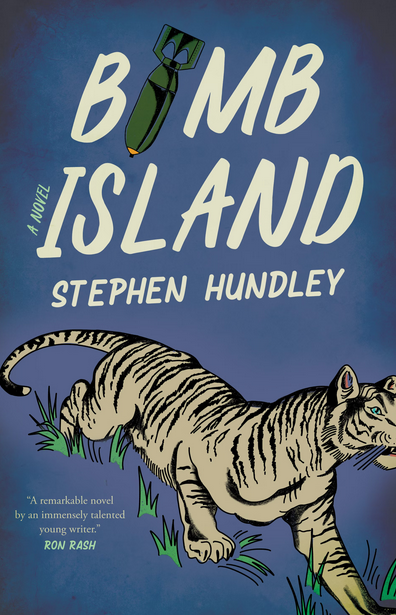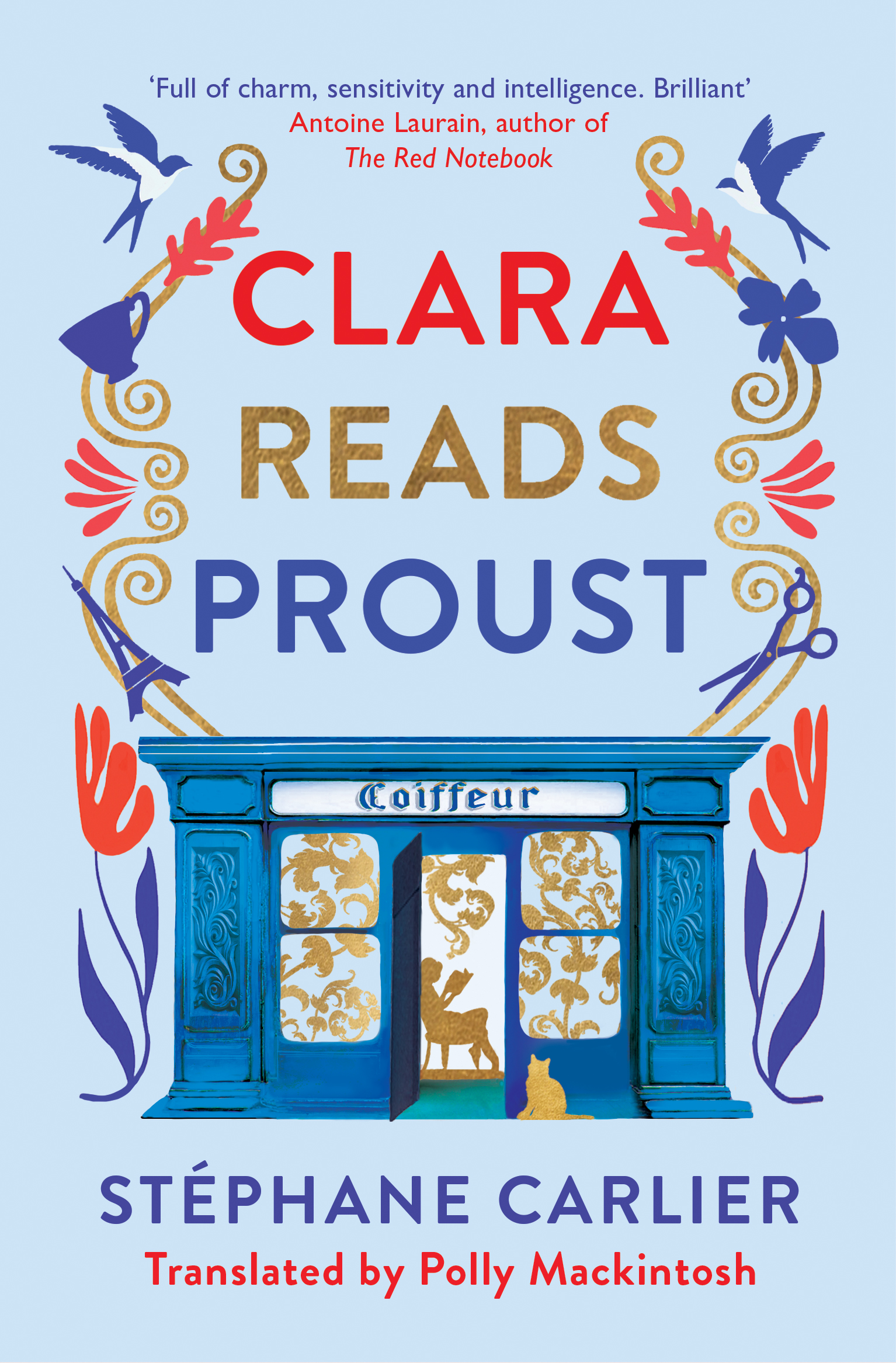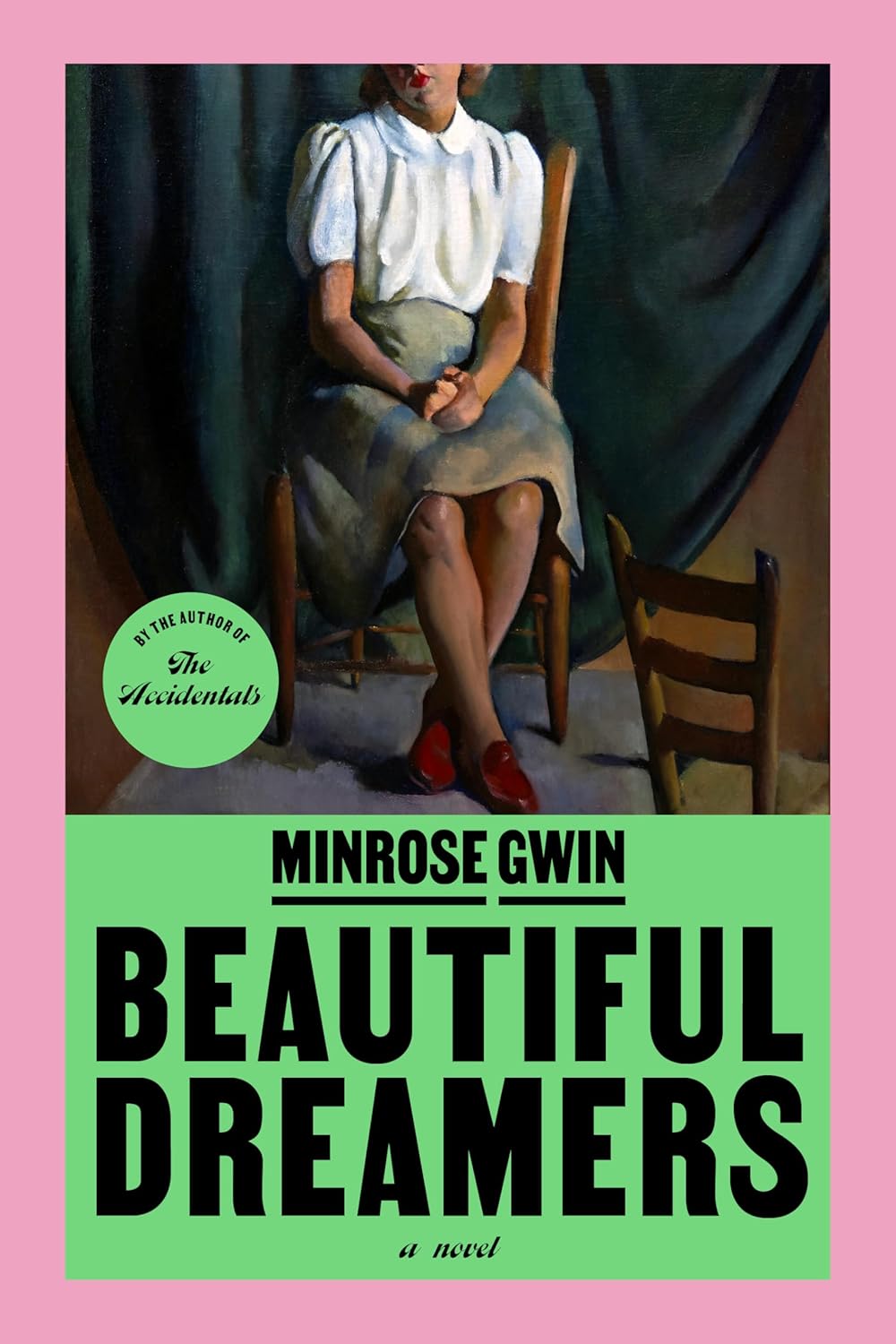Bomb Island: A Novel
- By Stephen Hundley
- Hub City Press
- 224 pp.
- Reviewed by Willem Marx
- July 18, 2024
In this solid debut, an underwater explosive isn’t the only thing about to blow.

Near a submerged nuclear bomb in Georgia sits an island nature reserve full of horses as paranoid as the humans ought to be. A tiger named Sugar hunts the resident ponies from a jungled interior, where members of a failed commune secretly live. Though the commune’s leader brought Sugar to the place years ago, not everyone is happy about living with a full-grown predator anymore.
This is the setting of Stephen Hundley’s visionary debut novel, Bomb Island. It’s a real place…sort of. There truly is an unexploded nuclear bomb sunk off the coast of Savannah, the result of a Cold War-era accident, but that’s where facts give way to fiction’s rites of passage. Bomb Island is a story of becoming something, of journeying out of the howling wilderness into a society that is sometimes even more terrifying.
Fish, a naïve 14-year-old, has lived on Bomb Island since almost before he can remember. He grew up in the small commune, which has dwindled from 15 members to four, helping Whisper, the group’s oracular leader and his surrogate mother, with her small business of ferrying tourists in a glass-bottomed boat to see the sunken explosive.
As the book begins, Fish’s cloistered life is less than Edenic. The maturing tiger mauls him, yet Whisper won’t hear of getting rid of it; teens in the mainland town of Royals have begun to take notice of Fish and torment him; and Reef and Nutzo, two male role models — and the only other remaining commune members — are ready to leave. Change is afoot, but Fish is caught in a teenage paralysis that’s all the more crushing for the fact that, having never lived among anyone his own age, he doesn’t know what it means to be a child, let alone how to no longer be one.
The first half of the novel weaves an intricate net of tight relationships and potential fault lines. Fish is haunted by a humiliating interview with a mainland boy. He also meets a girl, Celia. She’s tattooed, older, and has a broken arm and plenty of secrets of her own. Still, she invites him to a party (his first) for some reason. This burgeoning life beyond the island makes Whisper hold onto Fish more firmly, igniting a rage that he can’t express but which ultimately consumes the narrative.
Fish isn’t the only furious one, though. Celia’s father, a volatile fisherman, harbors a grudge against Whisper; Nutzo and Reef have violent pasts; and Whisper bears a scar from a gunshot wound to her head.
In many ways, Bomb Island is an exploration of anger and manhood, which is perplexing given the lack of fully formed men in the story. These are half-grown boys in men’s bodies — immature in their fierceness and not quite able to stand on their own two feet. This is a story of shedding boyhood without precisely grasping what comes next.
Like any good book (and this is a good one), love, in all its grace and brutality, is never far. Fish wonders if any girl will really love him before he grows a mustache to hide the embarrassing mole on his upper lip. Celia refuses to accept that violence and love go hand-in-hand but hasn’t seen otherwise. Whisper, who seems to understand everything, can’t grasp that, to a 14-year-old boy, love can be as constricting as it is necessary. She offers affectionate words meant to placate Fish’s fears, but they only cause his anger to burn brighter. Much of the book plays on these complex perceptions; a single tender act can ricochet in unpredictable and disastrous ways.
Bomb Island maintains a delicate balance between the raw earthiness of the setting and symbolism that has every character doubling as an archetype, every act as an idea. Fish is a modern riff on the old notion of the wolf-child, the boy raised outside society who suddenly appears on a city street. Whisper is a mother, a prophet, a tyrant. The sense that the events playing out exist on many planes creates a thick, tangible funk that is, frankly, magnetic. At his best, author Hundley creates rhythms and textures that feel deeply authentic and rooted in a specific time and place — even if that time is adolescence and the place is imaginary.
However, there are stumbles, particularly in the novel’s second half. Though written in the third person, the perspective remains Fish’s until midway through, when alternating chapters begin to zoom in on other characters’ points of view. This feels like an unnecessary ploy to build sympathy and drum up narrative tension. Additionally, there are awkward transitions between scenes and blundering dialogue, creating moments when this stellar work feels rough around the edges.
Nonetheless, the pulse of Bomb Island, its attention to how love goes awry, how violence can feel like a shortcut to adulthood, and how much is lost (and won) when we finally do grow up, lingers long after the last page. It’s a beautiful story about moving into the future and reconciling with the past, even when this act of self-integration feels like a tragedy.
Willem Marx is a writer, translator, and teacher who splits his time between Hallandale and Vicenza. He is an assistant fiction editor at Asymptote, editorial intern at Electric Literature, and writes for himself. His work has appeared in Asymptote, Electric Literature, Necessary Fiction, and elsewhere. He regularly updates it here.

